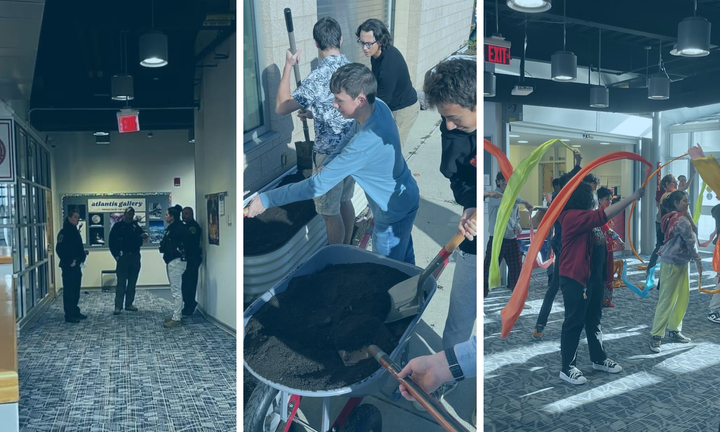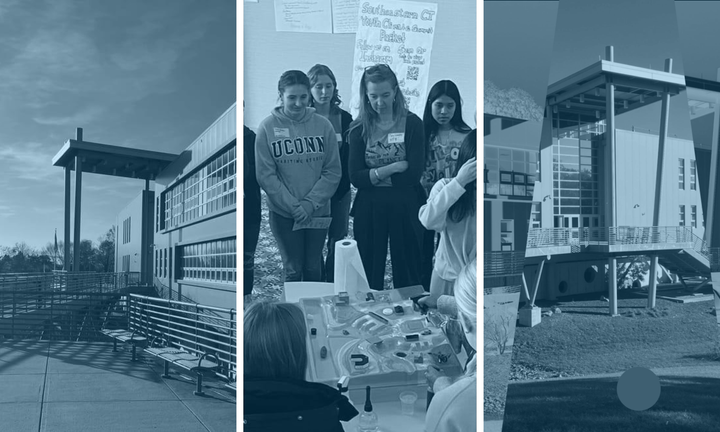What’s Wrong With Test Retakes — And How To Fix It
Columnists Loralei Bishop and Theo McGee debate the test retake policy at MSMHS.

MSMHS has a retake policy that allows students to retake some tests and assignments to improve their grades. This policy varies by class, but is ultimately aimed at ensuring students learn the material, and don't just do badly on a test and move on.
Editor's Note: This conversation took place via text, and has been lightly edited for clarity.
Theo: So, retakes. Quite frankly, some of the policies don't make any sense. I understand the necessity of them, but I think that we have gone too far, and now there isn't any point in trying because students can always just do a retake.
Loralei: I agree — in classes that allow retakes, students abuse them. A common practice that I see students doing is avoiding studying until they take a test and then only studying what they know will be on the retake. However, I think this issue could be solved if it was a requirement for a student to demonstrate that they studied the material before doing a retake. This could be demonstrated in many ways, such as meeting with the teacher to cover the content or showing their notes.
Theo: There is absolutely a problem with the abuse of retakes. However, I disagree with your solution. I don't see a point for students to need to prove their studying for a few reasons. Firstly, every student needs to study for different amount of time to grasp the material. Further, meetings would take so much of a teacher’s time. Finally, that takes the pressure off the student’s ability to study. I think that there should be a policy that allows one retake, per semester, per class.
Opinion columns are written by Current staff members to stimulate discussion of MSMHS-focused issues. Columns provide a public space for the author's personal opinions, and don't represent the voice of The Current overall.
Loralei: An issue that could occur with that policy would be that — if a student is only allowed one retake per semester — they would want to get the most out of that retake by using it on the subject they struggled with the most. In theory, this is a good policy, but it encourages students to wait to retake tests so that they don’t use their one retake. Taking the test significantly after the original date of the test could lead to many negative consequences, such as not understanding the foundational material for the next unit.
I think that students should be able to do corrections on tests, where they would state the correct answer and support it with reasoning and notes. This would demonstrate that the student truly understands the question and the answer they're giving.
Theo: That is a very valid point — my hesitation about corrections is that students won't necessarily learn information; they’ll just look at their test and then Google it and, boom, it's done. There is no proof that they actually learned the material. Corrections only show that a student was able to look something up and then slightly rephrase it, which could also be very easily done with some sort of AI. However, I do think that there is a place for corrections — maybe for smaller assignments. However, I don't think they make sense for larger tests, and this is where the retaking of a test would come back in, maybe with the condition that the student has to hit a certain grade in order to be eligible.
Loralei: I agree — there are many valid concerns with a corrections system, and I think that it could be implemented for smaller assignments very effectively. The system of retaking tests with a grade limit is a flawed plan. For example, if a teacher requires a grade of less than 70% to retake a test that means that someone who got a 60% on the original test could retake it and get a 90%. However, someone who got a 75% would be stuck with their score. That policy is simply unfair.
The point of a retake is to improve your grade, but — more importantly — it is to help you learn the material that you didn’t understand the first time. This policy limits the chance for students to learn and improve.
We have both brought up some good policy ideas, each one with its flaws. I think the most productive action to be taken is to do research. Have teachers in various subjects implement different retake policies and then get the teacher's and students' feedback, allowing for feedback and correction from those who are affected by the policies the most. Every solution will have its flaws, but doing research first could minimize those flaws and develop the best system possible.
More on grading







